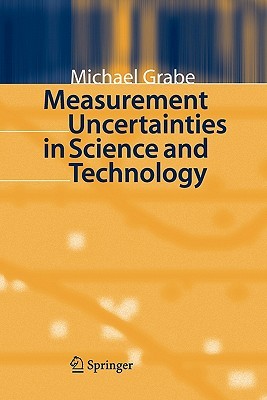
- We will send in 10–14 business days.
- Author: Michael Grabe
- Publisher: Springer
- Year: 2010
- Pages: 269
- ISBN-10: 3642058957
- ISBN-13: 9783642058950
- Format: 15.6 x 23.4 x 1.5 cm, minkšti viršeliai
- Language: English
- SAVE -10% with code: EXTRA
Measurement Uncertainties in Science and Technology (e-book) (used book) | bookbook.eu
Reviews
Description
At the turn of the 19th century, Carl Friedrich Gauss founded error calculus by predicting the then unknown position of the minor planet Ceres. Ever since, error calculus has occupied a place at the heart of science. In this book, Grabe illustrates the breakdown of traditional error calculus in the face of modern measurement techniques. Revising Gauss' error calculus ab initio, he treats random and unknown systematic errors on an equal footing from the outset. Furthermore, Grabe also proposes what may be called well defined measuring conditions, a prerequisite for defining confidence intervals that are consistent with basic statistical concepts. The resulting measurement uncertainties are as robust and reliable as required by modern-day science, engineering and technology.
EXTRA 10 % discount with code: EXTRA
The promotion ends in 21d.13:16:17
The discount code is valid when purchasing from 10 €. Discounts do not stack.
- Author: Michael Grabe
- Publisher: Springer
- Year: 2010
- Pages: 269
- ISBN-10: 3642058957
- ISBN-13: 9783642058950
- Format: 15.6 x 23.4 x 1.5 cm, minkšti viršeliai
- Language: English English
At the turn of the 19th century, Carl Friedrich Gauss founded error calculus by predicting the then unknown position of the minor planet Ceres. Ever since, error calculus has occupied a place at the heart of science. In this book, Grabe illustrates the breakdown of traditional error calculus in the face of modern measurement techniques. Revising Gauss' error calculus ab initio, he treats random and unknown systematic errors on an equal footing from the outset. Furthermore, Grabe also proposes what may be called well defined measuring conditions, a prerequisite for defining confidence intervals that are consistent with basic statistical concepts. The resulting measurement uncertainties are as robust and reliable as required by modern-day science, engineering and technology.


Reviews